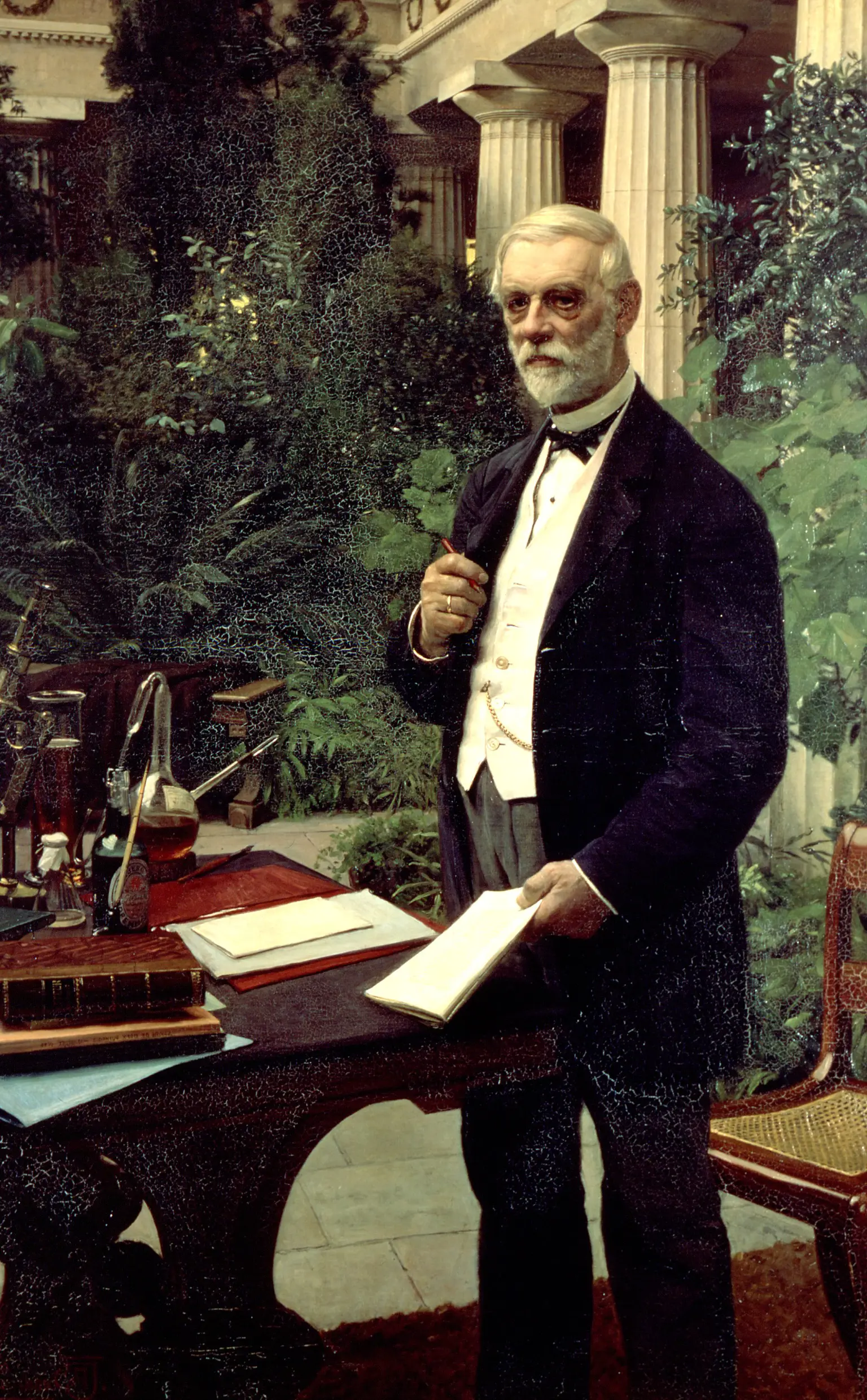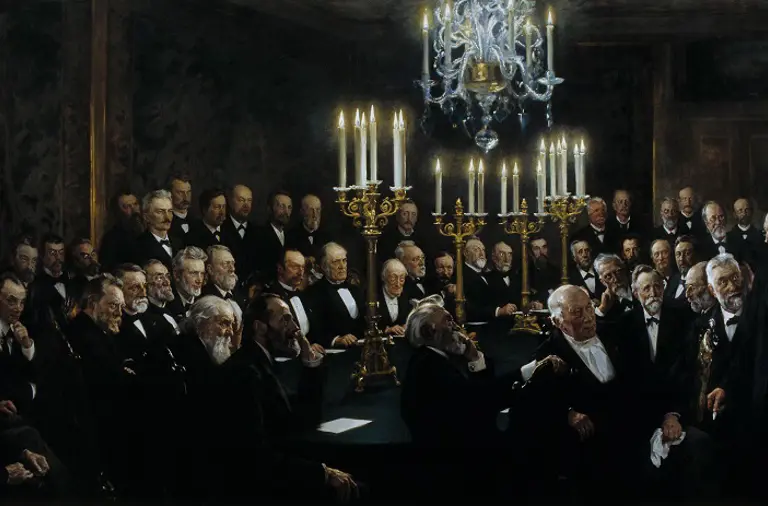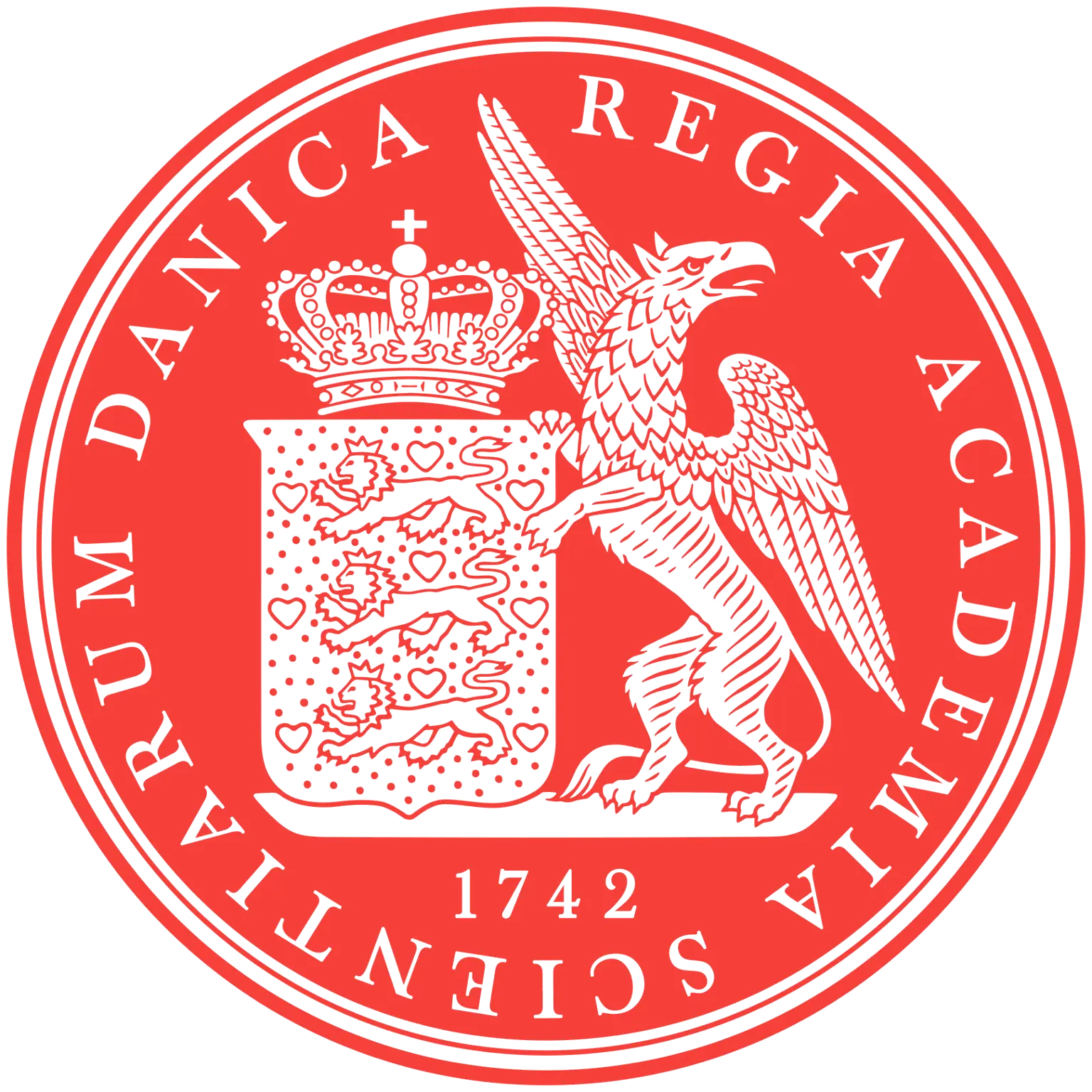The Royal Danish Academy of Sciences and Letters
The Royal Danish Academy of Sciences and Letters
Published:
01.05.2024
As well as working independently to promote the status of science in Denmark, the Royal Danish Academy of Sciences and Letters and the Carlsberg Foundation are bound together through an historic and unique arrangement. It is the academy that, among other things, appoints the members of the foundation’s board of directors.
The Royal Danish Academy of Sciences and Letters and the Carlsberg Foundation have a special relationship that goes back to the foundation’s establishment in 1876. At that time, the foundation’s founder, J.C. Jacobsen, asked the academy to appoint five professors from among its members to constitute the foundation’s board. This was to safeguard the foundation’s “existence now and in the future and ensure that it can always act for the benefit of the sciences and the honour of Denmark,” as J.C. Jacobsen expressed it in his letter to the academy.
Brewer J.C Jacobsen’s letter
In his letter to the Royal Danish Academy of Sciences and Letters of 25 September 1876, J.C. Jacobsen wrote: “To this highly esteemed academy I therefore venture to turn with the request that, by electing from its midst certain men to watch over the aforementioned establishment and to direct its activities, it will safeguard its existence now and in the future and ensure that it can always act for the benefit of the sciences and the honour of Denmark.”
Read the whole letter (in Danish)

The most suitable custodians
As a brewer, a private individual and a citizen, J.C. Jacobsen was passionate about the flourishing science of his day, and he regarded scientists as the most suitable custodians of his new foundation. According to J.C. Jacobsen, the Royal Danish Academy of Sciences and Letters was therefore in a unique and, most importantly, independent position to appoint the best people to head up the Carlsberg Foundation:
“In order, however, for such an establishment [the Carlsberg Foundation] to be able to operate as intended both now and in the future, it must be ensured a permanent board of men with scientific insight and capability, in which regard thought must naturally turn to the academy in which the Danish scientific spirit has thus far found, and will assuredly always find, its supreme representatives, and which in Denmark is the only institution to be so fortunate as to be independent of all foreign, non-scientific motives and influences, namely the Royal Danish Academy of Sciences and Letters.”
J.C. Jacobsen. Letter to the Royal Danish Academy of Sciences and Letters, 25 September 1876.
The Carlsberg Foundation’s board members are elected by and from among the members of the Royal Danish Academy of Sciences and Letters. The academy’s appointing role is important because the Carlsberg Foundation’s board, as the supreme authority of the foundation, is responsible for pursuing the foundation’s two general objects: ownership of Carlsberg A/S and the awarding of grants for socially beneficial purposes, including support for independent basic research. The five members of the foundation’s board thus need to be able to draw on a combination of competences.
P.S. Krøyer. 'A Meeting in the Royal Danish Academy of Sciences and Letters', 1897
Formal matters
Members of the Carlsberg Foundation’s board are elected by and from among the ordinary members of the Royal Danish Academy of Sciences and Letters, i.e. the academy’s members who are either Danish citizens, live in Denmark, work in Denmark or have ties to Denmark or Danish research. The remaining corresponding members of the academy, i.e. those who are not Danish citizens or do not live or work in Denmark, do not participate in the appointment of the foundation’s board and cannot be elected to the board.
Furthermore, the foundation’s charter contains further guidelines on the relationship between the Carlsberg Foundation and the Royal Danish Academy of Sciences and Letters:
- The foundation’s board must each year present the foundation’s annual report to the academy for its information.
- The academy must approve the remuneration of the foundation’s board.
- The academy must each year receive a grant deemed appropriate by the foundation’s board that serves as a contribution to “the safeguarding of the independent status and functioning of the academy.
- The academy must appoint two members to the Carlsberg Research Laboratory’s board of trustees.
- The academy has a registered right to use, free of charge, the centre building of the foundation’s headquarters at 35 H.C. Andersens Boulevard, Copenhagen.
- Any change to the foundation’s charter requires the consent of the academy.
A self-governing foundation
The role of the Royal Danish Academy of Sciences and Letters in relation to managing the Carlsberg Foundation is confined to the above matters and competences. As an enterprise foundation, the Carlsberg Foundation is a self-governing entity whose board is its supreme authority. The Danish Business Authority, as the foundation authority and in accordance with the Danish Commercial Foundations Act, is solely responsible for supervising the Carlsberg Foundation, including the foundation’s commercial and benevolent work.
About the academy
The Royal Danish Academy of Sciences and Letters provides a framework and meeting-place for outstanding researchers. The academy comprises two classes: a humanities class (humanities and social sciences) and a natural sciences class (natural sciences, health science and technical science). The academy has around 500 members, of whom around three quarters are ordinary members with a split of roughly two fifths humanities and three fifths natural sciences.
The website of the Royal Danish Academy of Sciences and Letters